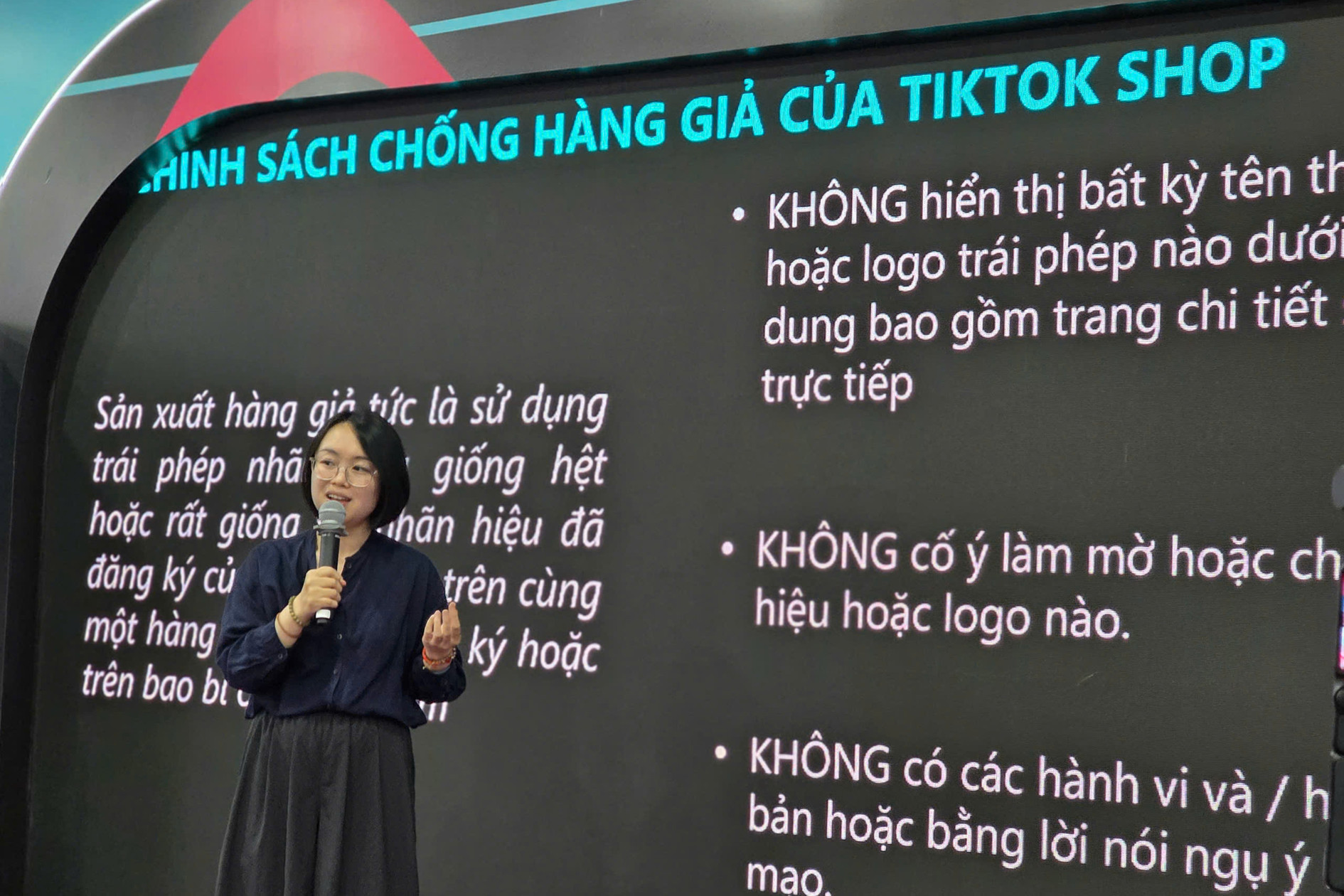Nguyen Huu Tuan, Director of the Center for E-commerce Development at the Ministry of Industry and Trade, stated that e-commerce platforms must retain livestream data for three years to serve as reference evidence in case of disputes or violations.

Nguyen Huu Tuan: Sustainability in e-commerce lies in ethics and legal compliance. Photo: TK
On June 25, 2025, the Center for E-commerce and Digital Technology Development under the Ministry of Industry and Trade, in collaboration with TikTok Shop, officially launched a legal training program for e-commerce.
At the event, Nguyen Huu Tuan, Director of the Center, emphasized that while creativity is key, sustainability lies in ethics and legal compliance.
“Business ethics are about transparency with customers. Legal compliance is the foundation of a fair and transparent e-commerce environment. We especially stress the importance of a full understanding of laws, tax obligations, and honest advertising - critical elements for building credibility and long-term success.”
Tuan noted that Vietnam’s e-commerce legal framework has become increasingly comprehensive, grounded in core regulatory documents.
He outlined four core principles for e-commerce operations. First, sellers on any platform must agree to that platform’s tax and fee policies.
Second, clearly defining the scope of operations is essential; if unspecified, buyers may assume nationwide coverage.
Third, sellers are accountable for their products and must comply with Decree 85, including bearing joint liability.
Fourth, there are currently 227 conditional business sectors. If operating in one, sellers must meet its legal requirements. For example, alcohol sales require a license.
E-commerce is merely a method of ordering - it doesn’t exempt sellers from fulfilling legal business conditions.

Tuan also highlighted a new rule: e-commerce platforms must retain livestream data for three years for auditing and investigation purposes. Sellers must provide platforms with full product details and sales policies. Foreign sellers are required to submit legalized documentation to operate on Vietnamese e-commerce platforms.
If a platform fails to collect sufficient seller information, it too can be fined. Moreover, KOLs who promote counterfeit goods face criminal liability and may be banned from professional activities for up to three years. Influencers are now required to demand full and transparent sponsorship disclosures. They will also be held jointly liable for false advertising.
Nguyen Viet Hoa, Head of Tax Department No. 2 (Tax Management for E-commerce Platforms), stressed the need for continuous updates to Vietnam’s e-commerce tax framework to ensure effectiveness amid rapid digital and cross-border trade growth. Platforms must declare and withhold taxes for their sellers.
At the event, Nguyen Thi Cam Giang, representative of TikTok Shop, stated that strict internal policies on content, advertising, and sales are key to sustainable growth. “All content must be truthful, non-misleading, and respect intellectual property rights.”
Nguyen Lam Thanh, representing TikTok Vietnam, added: “TikTok Shop not only provides growth tools but also collaborates with government agencies to equip sellers and creators with solid legal knowledge in our ecosystem.”
Thai Khang